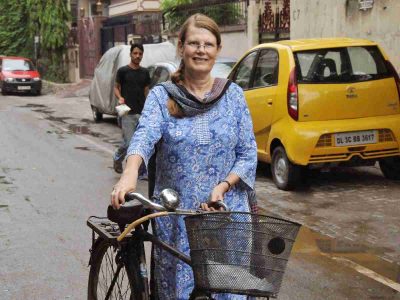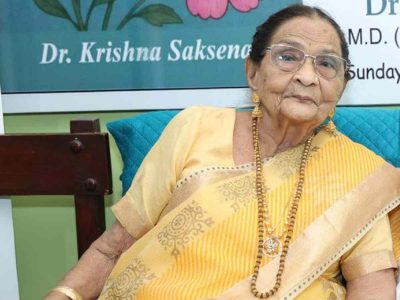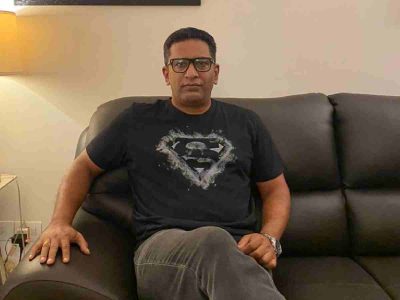Former India captain Harbinder Singh, one of the country’s most decorated hockey players, has been awarded the Padma Shri, India’s fourth highest civilian award, this year.
The 80-year-old was part of India’s gold medal-winning team at the 1964 Tokyo Olympic Games and 1966 Bangkok Asian Games; and also led India to silver medal in the 1970 Asian Games. He was also a member of the 1968 and 1972 India’s Olympic Games teams that returned with bronze.
“I was just four when I came to Punjab from Quetta (now in Pakistan) during Partition. I still have some memories of Partition,” says the octogenarian as he turns the clock back on his life and career.
As a youngster, he had to shift cities according to his father’s posting in the Army.
“Sports was in my genes. When I was growing up, I saw my father playing various sports. As an Armyman, indulging in sports every evening in the camp was mandatory for him,” adds Harbinder, who studied till Class 1 in Indore before completing primary schooling in Jabalpur (then Madhya Pradesh) since his father was transferred there.
In 1954, he joined the Cantt Board High School in Jalandhar (Punjab).
“The school hockey team had already been formed, so I joined the football team and played for it till matriculation (class 10),” he recalls.
He was also bright in studies and got admitted to Khalsa College (Punjab University) in Amritsar on the merit of his academic results. He picked humanities.
College is where his hockey journey began.
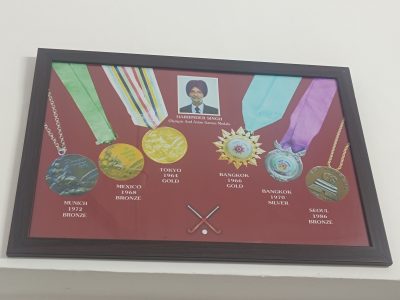
“I saw a notice on the board stating that trials are on for the selection of college hockey team. I got selected and started playing hockey,” says Harbinder, who lives in central Delhi’s Rouse Avenue.
“When we used to play hockey, the athletics in-charge used to watch us. One day he came up to me and said, ‘you have speed, you should try athletics also’. So, I started competing in athletics besides playing hockey for college and university.”
The college years — 1958 to 1962 — were extremely productive in sports as he won gold medals in both hockey and athletics while representing Punjab University.
He also went on to achieve a rare feat, winning gold in nationals in two sports – hockey and athletics.
By the third year (in 1961), he was selected in the Indian hockey team, becoming the youngest player to do so. His first international matches were against Australia and New Zealand and following that, he joined Northern Railways and shifted to Delhi in 1962.
All this may not have been possible if he hadn’t moved to Jalandhar.
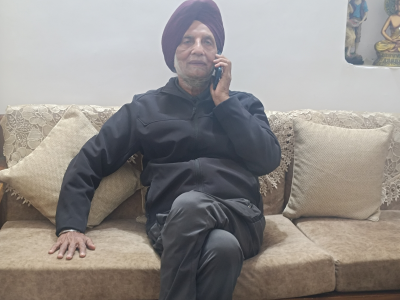
“Jalandhar was a base of the army, and back then, every village located around Jalandhar had a top-class hockey team. It was daily routine for us to watch hockey matches of different village teams every evening, and that’s how my brother and I started playing hockey. We used to borrow the sticks of players, who were our father’s friends,” adds Harbinder.
He recalls the time when he was in eighth standard in 1956.
“The National Hockey Championship was held in Jalandhar that year. The players used to stay where my father was placed and my brother and I used to travel with them in a truck to watch them play. There were many Olympians like goalkeeper Shankar Laxman (known as Shanky) who had participated in the 1956 Melbourne Olympics. Watching them play sparked interest in me.”
Eight years later, when Harbinder returned with a gold medal from Tokyo Olympics, his father came to receive him.
Seated alongside him and Harbinder in the car was Shankar Laxman who was also part of the gold-winning 1964 Olympic team.
“My father asked him, ‘do you remember the two boys who used to travel with you during the 1956 nationals?’ Shankar said, ‘yes, they were two turbaned kids’. My father said, ‘Harbinder, your Olympic teammate, is one of them’. Hearing this, Shankar hugged me tight.”
The former hockey star was known for his speed and early grounding in athletics helped him in hockey, especially in scoring some memorable goals.
“I scored against every strong team of that time. The goal against Pakistan in an international tournament in Hamburg in 1966 still thrills me. Pakistan scored to take lead but within 20 seconds I scored back to equalise. I took the ball from centre-line all alone, leaving players and officials stunned.
“After the match Pakistani official Khurram Sheikh came to me and commended me saying that this goal would have been impossible for others to score. He added, ‘It is so beautiful that you should frame it in gold’.”
Harbinder attributes it all to his training in athletics.
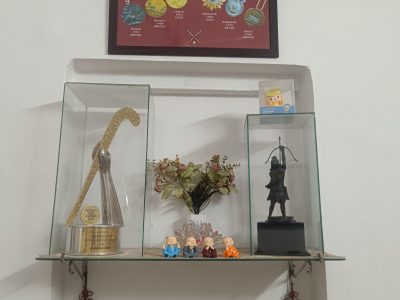
During the Pre-Olympic Hockey Tournament in 1967, he was badly injured ahead of the match against Australia at Lord’s, the historic cricket ground.
But he scored two goals thanks to his speed.
“My goals were mentioned in the newspapers that acknowledged the speed I had and one paper mentioned that my picture should be framed in the Long Room alongside cricketers like Garry Sobers and Tom Graveney as people will talk about these goals for years. This was despite me missing hat-trick.”
There were moments of disappointment too early in his career.
Despite being among goals on tour of Australia and New Zealand in 1961, he failed to get a place in the 1962 Asian Games hockey team.
“Actually, we faced a lot of competition in those days. Every position in the team had 5-6 players of the same level, so it was tough for anyone to cement his place in the international team.”
But after playing and performing in the nationals in 1963 at Madras (now Chennai), he returned to the Indian team and travelled to every international tour from 1963 to 1974.
Over the years, he has witnessed a lot of changes especially in facilities.
“Hockey is a technical game. There are a lot of facilities for players now. I feel good that players are getting big platforms and a lot of international exposure,” he adds further.
He was awarded the Arjuna Award in 1967 before this year’s Padma Shri.
“I am glad and happy to receive this award as I already have got the Arjuna Award. Getting this award is an honour for me even at this age as there is no right time for any award.
“Among all the medals and achievements, the first Olympic medal that I won in Tokyo 1964 is my favourite. That was the happiest day of my life. After all, it was my first medal and that too when I was the youngest player in the team,” said Harbinder, who lives with wife and son, and is associated with RoundGlass Sports which looks after nurturing fresh talent in the state of Punjab.


